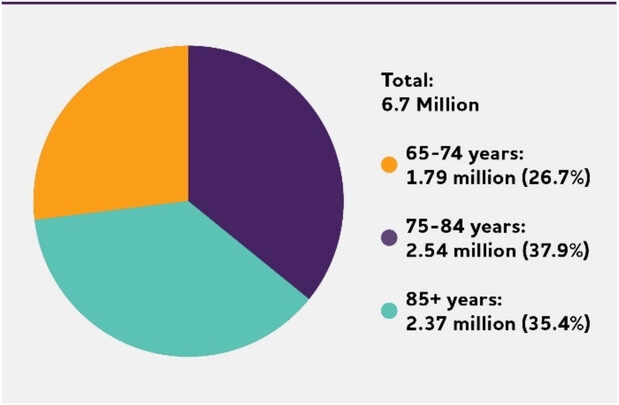Oh, it’s f*cked. Worse than what we thought. Even when you know something is wrong the diagnosis still hurts like hell. Coping with a family member diagnosed with Alzheimer’s can be overwhelming and emotionally challenging. The inability to take any action is what makes it sting the worst.
Watching a loved one’s memory fade away and witnessing the progressive decline in their cognitive abilities is heart-wrenching. Not having a cure and seeing all those that suffer we at least know we are not alone in this journey.
As I try to educate myself, I explore effective strategies and practical tips to navigate through this difficult time. From understanding the disease itself to creating a supportive environment and seeking professional help. I aim to seek the knowledge to manage the circumstances and pass along helpful information while doing such.
Understanding Alzheimer’s Disease
Alzheimer’s disease is a progressive neurological disorder that affects the brain, causing memory loss and cognitive decline. It is the most common cause of dementia, accounting for 60-80% of all cases. The disease typically starts slowly and worsens over time, eventually interfering with daily tasks and independence. Alzheimer’s is characterized by the accumulation of plaques and tangles in the brain, which disrupt the communication between neurons.
While the exact cause of Alzheimer’s is not yet fully understood, certain risk factors have been identified, including age, genetics, and lifestyle factors. It is important to have a basic understanding of the disease to better cope with its effects on your loved one and your family as a whole.
The Emotional Impact of a Loved One’s Alzheimer’s Diagnosis
It’s normal to experience a wide range of emotions, including guilt, stress, grief, sadness, anger, and fear. It’s crucial to acknowledge and process these emotions, as they are a natural part of the journey.
It is also important to remember that your loved one may be experiencing their own emotional turmoil. This disease can make those diagnosed feel frustrated, confused, or scared as they navigate through the changes in their cognitive abilities. Be patient and understanding, and try to remember the words that may result from their anger and frustration are not on you personally. In fact, it may be their own emotions understanding their mental decline.

Coping Strategies for Family Members
Caring for a family member with Alzheimer’s requires strength, resilience, and a supportive mindset. Here are some coping strategies to help you navigate this journey:
Educate Yourself: Learning as much as you can about Alzheimer’s will empower you with knowledge and understanding. It will also help you anticipate and manage the challenges that may arise.
Take Care of Yourself: It is easy to neglect your own well-being when caring for a loved one with Alzheimer’s. However, self-care is crucial for your own physical and mental health. Make time for activities you enjoy, seek support from others, and prioritize your own needs before you crack to the frustrations.
Practice Patience and Empathy: Alzheimer’s can cause changes in behavior and personality. It is important to remember that these changes are a result of the disease and not a reflection of your loved one’s true self. Practice patience, understanding, and empathy in your interactions.
Creating a Support Network: Caring for a family member with Alzheimer’s is not something you should do alone. Building a support network is essential for your own well-being and the well-being of your loved one. Here are some steps to create a support network:
Reach Out to Family and Friends: Inform your close circle about your loved one’s diagnosis and ask for their support. Having loved ones who understand and empathize with your situation can make a significant difference.
Join a Support Group: Connect with others who are going through similar experiences by joining whether it’s friends or other caretakers. Sharing stories, advice, and resources can provide emotional support and practical guidance.
Seek Professional Help: Consider engaging the services of a professional caregiver or respite care provider to give yourself a break and ensure your loved one receives the care they need. Additionally, consult with healthcare professionals specializing in Alzheimer’s for expert guidance and support.
Communicating Effectively with a Loved One with Alzheimer’s
Communication can become challenging as Alzheimer’s progresses. I’m at the point where I’m not sure if they are going to speak English or revert back to their original language before immigrating to the United States.
Keep It Simple: Use clear and concise language, and avoid complex sentences or instructions. Break down information into smaller, manageable chunks. It’s almost as if the roles changed and you are now the parent.
Use Non-Verbal Cues: Non-verbal cues such as facial expressions, gestures, and touch can help convey your message when words fail. Might have to do anything to get your point across.
Be Patient and Listen: Give your loved one time to process information and respond. Avoid interrupting or rushing them. It also may take time or a different method for the patient to get their point across or express what they need.
Managing Caregiver Stress and Burnout: Caring for a family member with Alzheimer’s can be physically and emotionally demanding. At times it could even be damaging. It is important to recognize the signs of caregiver stress and burnout and take steps to manage it. Here are some strategies:
Take Regular Breaks: Schedule regular breaks to recharge and rejuvenate. Use this time to engage in activities that bring you joy and disconnect from the unfortunate circumstances.
Delegate Tasks: You make simply be inept as a care taker, and that’s okay. Instead of bringing guilt amongst yourself, don’t be afraid to ask for help and delegate tasks to other family members or trusted individuals. Sharing the responsibilities is a requirement so one sole caretaker doesn’t lose their mind as well.
Practical Tips for Daily Caregiving
Providing care for a family member with Alzheimer’s requires adaptability and creativity. At this point you are now responsible for teaching your loved one how to live at their mental capacity. Here are some practical tips for daily caregiving:
Establish Routines: Create a structured routine that provides predictability and comfort for your loved one. Stick to consistent meal times, regular exercise, and a predictable sleep schedule. All of this must be prioritized.
Simplify the Environment: Remove clutter and create a safe and organized living space. Label drawers and cabinets, use color-coded cues, and simplify choices to minimize confusion.
Engage in Meaningful Activities: Encourage your loved one to participate in activities that they enjoy and that stimulate their cognitive abilities. This could include puzzles, music therapy, or reminiscing through photo albums. Whatever they like to do to keep their brain stimulated. You can’t simply cannot neglect them as it could intensify the already had symptoms.
Seeking Professional Help and Resources
Although we face the health costs crisis. It may be deemed necessary if affordable to seek such professional help. As Alzheimer’s is a complex disease, seeking professional help and utilizing available resources is crucial. Here are some options to consider:
Consult Healthcare Professionals: Reach out to healthcare professionals specializing in Alzheimer’s for accurate information, guidance, and support. They can help you understand the disease progression and provide recommendations for care.
Explore Community Resources: Many communities offer resources specifically designed for individuals with Alzheimer’s and their families. These resources may include support groups, educational programs, and respite care services. Some of these activities are now migrating to online platforms making them more accessible.
Plan For The Future: This might be the hard part for those caretakers in initial denial. It is important to plan ahead and discuss long-term care options with your loved one. This may include exploring assisted living facilities, home healthcare services, or creating a legal and financial plan. Even when that’s all taken care of you have to emotionally embrace for the after. After you’ve given your all to ensure the best quality of life for your loved ones remaining days, we still have yet to see someone beat this deadly disease.
Coping with a family member diagnosed with Alzheimer’s is a challenging journey that requires strength, compassion, and support. By understanding the disease, creating a supportive environment, seeking professional help, and practicing self-care, you can navigate through this difficult time with resilience and hope. Remember, you are not alone, and there are resources available to help you along the way. Stay strong, and cherish the moments of connection and love with your loved one. Another chapter in our lives that teach us the fragility of life.



Leave A Comment